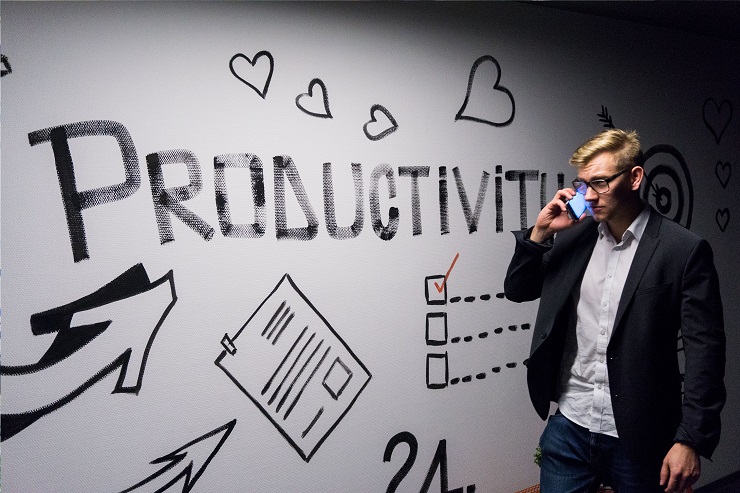The journey of a business owner is unpredictable—whether you’ve just entered the startup phase or launched a brand several years ago, there will be obstacles, fears, changes, and instabilities. That’s why surviving as an entrepreneur is all about mindset.
As you look to build your business, consider how these simple yet critical mindset shifts can move you into action, keep you in learning from failures, and allow you to build relationships with customers and clients that will pay dividends.
Be Open to Curiosity and Continuous Learning
Great entrepreneurs know that their learning never ends. As a business owner, you’re forever taking on new roles, expanding your skills, and learning by doing. But that doesn’t mean you’re automatically learning every day. It’s easy to miss these opportunities if you haven’t shifted into the mindset of learning.
To get into this mindset, consider this insight from the Hubgets’ guide, in Life Approaches and How They Affect Your Attitude: “Lifelong learners constantly expose themselves to new ideas, drawing inspiration from new experiences. Work attitude is largely affected by this approach, as a lifelong learner will not only be receptive to new ideas and procedures but see each opportunity as a chance to grow.”
As you can see, it takes a conscious approach to learn to reap the benefits of the many opportunities you have as a business owner to grow. The best part is, you don’t need to seek out expensive learning opportunities. You’re learning every single day if you’re open to and looking for the lessons.

Shift your mindset: Spend time at the end of each day reflecting on what happened, what worked and what you can take away. These daily lessons can be as simple as, “I’ve realized I worked better in the afternoon than the morning.”
Listen to and Reflect on Different Perspectives
You might be the leader and visionary behind the business, but it’s crucial to surround yourself with opinions, ideas, cultures, and worldviews that differ from yours, and then listen intently.
More than that, you need to hold space for their perspectives and take their ideas and opinions into account. You may be surprised at what you can learn or do when you start listening closer and talking less—ideas come from everyone and everywhere if you’re looking for them.

“You never know what you might learn from simply listening to the people around you. Whether it is an attendant on a train, an engineer beneath a spaceship of a customer service rep at a computer, I am endlessly surprised by what new and useful information I can gather just by keeping my ears open,” says Richard Branson.
Shift your mindset: Remember when talking with others, that you need to not only listen to what someone is saying but how they’re saying it. This is where active listening becomes important and the Center for Creative Leadership shares six techniques for practicing this skill:
- Pay attention
- Withhold judgment
- Reflect on what’s being said
- Clarify their ideas
- Summarize their points
- Share your thoughts
Remember: Failure is a Tool for Insight and Growth
Nobody aspires to fail, but it’s inevitable when you’re running a business. When you can reframe your concept of failure as Corcoran has, it becomes a doorway to new solutions where you’re able to use mistakes as a springboard for success. As Barbara Corcoran said, “My best successes came on the heels of failure.”
However, this isn’t an easy mindset to shift into because we, as humans, hate to fail. It automatically makes us question who we are and what we’re doing, suggests WHYY.org. When we make failures, we fall into two camps: blaming our behavior and blaming ourselves. The key to making this mindset shift is to focus on the behaviors. WHYY explains:
“A healthier response to failure is focusing on specific behaviors rather than looking at the experience as a reflection of one’s self because you can easily change your behavior, but it’s much harder to change who you are.”
Shift your mindset: The key to making this shift is doing the work to figure out why it failed, what your behaviors were, and how you can use those insights to move toward success. Start with yourself, a journal and some quiet space. Reflect back on what happened and how your behaviors affected the events that transpired.
Follow that up with a team meeting, where you gather together to gain insights from your employees. Your staff is on the frontlines doing the work and experiencing the day-to-day, so use his time to figure out what behaviors they believe lead to this failure. Use WeekPlan to turn the insights from yourself and your team into guidelines for getting it right next time, formal or otherwise.
Pursue Relationships More Than Transactions
You may need financial capital to launch a business, along with revenue to sustain it, but if customers or clients simply feel like a transaction, you miss your chance to build an emotional connection that will keep them coming back. For example, using a proactive approach to communication shows customers that you’re thinking of them and their best interest.
According to ZenDesk, only 30 percent of support teams are currently doing this as a way to tell customers about promotions, deals, and discounts instead of waiting for them to call and ask. While this can drive bottom-line benefits, ZenDesk explains that it goes well beyond that:
“The true benefit of proactive engagement is reducing customer effort, preventing issues with a product, and minimizing support tickets for your agents.”
Shift your mindset: To shift into this mindset, you must develop a customer-centric culture, putting the customer at the center of everything you do. For example, check out one way Slack does this with their team: “Slack measures customer support teams on their ability to respond to inquiries in a human way, rather than based on tickets resolved. This is done so that people do not feel like they are numbers in a queue, but thought of as a valued and respected customer.”
How you can make small changes like this that encourage both you and your team to take a relationship-first approach to clients and customer experience?
Allow the “Why” to Inform All Your Decisions
In a growing business, there are always distractions and challenges that take your focus away from the most important factor: why you started this business in the first place. Was it to fulfill the specific need of a niche demographic? Was it to harness your talents for creativity and innovation? Was it to make an impact on the local community?

Whatever fueled you to take that first step is the “why” that should continue to mobilize you into action when it might feel easier to quit. Annette Mason, the founder of Trilogy Design Works, shares her experience:
“When I feel connected with a purpose, the ‘why’ becomes a superpower and provides energy where I thought there was none.”
Tap into your “why,” and encourage your team to do so as well, ensuring that everyone is motivated to keep going, even when the going gets tough—which it inevitably will.
Shift your mindset: Your company values represent your “why.” When your values are clear and built into everything you do, it’s easier to stay in the mindset that you started with, which inspires you to do the work day in and day out. If you haven’t yet defined your company values, use this WeekPlan guide to values and purpose to get started.
Shift Your Mindset to Be a Better Entrepreneur: Growing pains can either take your business to the next level or cause it to buckle under the pressure—it all depends on how you react as the one at the helm. Use these mindset shifts to stay motivated, nurture better customer relationships, and stay open to learning at every step of the way.
Jessica Thiefels is the founder and CEO of Jessica Thiefels Consulting, an organic content marketing agency for mid-sized B2B businesses outsourcing content marketing. She’s been writing for more than 10 years and has been featured in top publications like Forbes, Entrepreneur and Fast Company. She also regularly contributes to Virgin, Business Insider, Glassdoor, Score.org and more. Follow her on Twitter @JThiefels and connect on LinkedIn.

More Posts
10 Best Objectives Key Result (OKR) Software for Entrepreneurs
Hello there, Entrepreneurs 🌟If you're searching for the best OKR software to streamline your goal-setting, track progress, and get real-time updates on your organizational objectives, you're in the right place. We've done the...
10 Best ADHD Planners for Adults in 2026 [Free & Paid]
Navigating daily life with ADHD as an adult can often feel overwhelming, which is why an ADHD digital planner for adults can be a game-changer for staying organized and focused. To stay organized...
Top 8 Smart Goal Planners for Students to Increase Productivity
![8 Best Goal Planners for Students]() Hello, student warriors! Balancing academic, personal, and extracurricular commitments in college is akin to a finely tuned orchestra – every aspect of life must be harmonious. That's...
10 Daily Habits That Will Change Your Life
Step into the daily routines of successful people, and you'll see a pattern—habits. Benjamin Franklin famously said, "Early to bed and early to rise makes a man healthy, wealthy, and wise." But is...